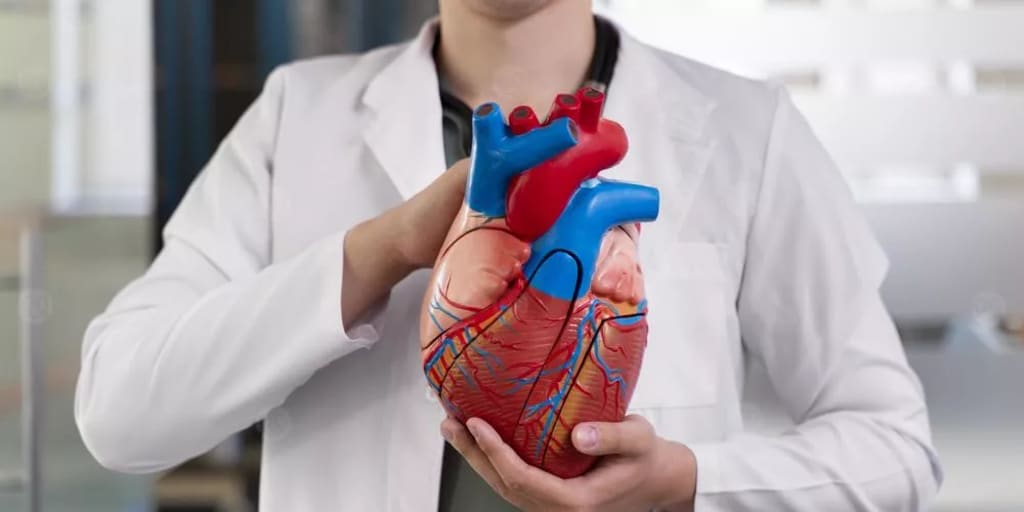How to Eat Your Way to a Healthy Heart: The Best Foods for Preventing and Managing Heart Disease
The Heart-Healthy Diet: What to Eat and What to Avoid for Optimal Cardiovascular Health

• How to Eat Your Way to a Healthy Heart: The Best Foods for Preventing and Managing Heart Disease
• Here are some tips first to keep a healthy heart
Heart Health: Tips to Keep Your Heart Healthy
Heart disease is one of the leading causes of death in the world, but it can be prevented by following a heart-healthy lifestyle. Here are some tips to help you protect your heart and reduce your risk of heart problems.
Don’t smoke or use tobacco. Smoking damages the heart and blood vessels, increases blood pressure and heart rate, and reduces the oxygen in the blood. Quitting smoking can lower your risk of heart disease significantly within a year. Avoid secondhand smoke as well.
Get moving. Physical activity helps control your weight, lower your blood pressure and cholesterol, and prevent type 2 diabetes. Aim for at least 150 minutes of moderate aerobic exercise or 75 minutes of vigorous aerobic exercise per week, plus strength training twice a week. You can also do shorter bouts of activity throughout the day, such as walking, gardening, or taking the stairs.
Eat a heart-healthy diet. A balanced diet that includes plenty of vegetables, fruits, whole grains, beans, lean meats, fish, low-fat dairy, and healthy fats can help protect your heart. Avoid foods that are high in salt, sugar, saturated fat, and trans fat. Some examples of heart-healthy eating plans are the DASH diet and the Mediterranean diet.
Manage your stress. Stress can affect your mood, blood pressure, and heart health. Find healthy ways to cope with stress, such as hobbies, music, laughter, meditation, or therapy. Avoid using alcohol, drugs, or tobacco to deal with stress.
Know your numbers. Check your blood pressure, cholesterol, blood sugar, and body mass index (BMI) regularly and talk to your doctor about your results. These numbers can help you monitor your heart health and identify any risk factors or problems that need treatment.
Take care of your teeth. Poor oral hygiene can increase the risk of infections that can affect the heart. Brush your teeth twice a day, floss daily, and visit your dentist regularly.
Drink moderately. Alcohol can have both positive and negative effects on the heart, depending on how much you drink. Moderate drinking (one drink a day for women and two drinks a day for men) may lower the risk of some types of heart disease, but heavy drinking can increase blood pressure, damage the heart muscle, and cause other problems. If you don’t drink alcohol, don’t start for the sake of your heart.
Have fun. Having a positive outlook and enjoying life can boost your heart health. Do things that make you happy, such as spending time with friends and family, pursuing your passions, or having sex. Sex can also lower blood pressure and improve cardiovascular fitness.
By following these tips, you can improve your heart health and live a longer and happier life.
The Heart-Healthy Diet: What to Eat and What to Avoid for Optimal Cardiovascular Health
How to Eat Your Way to a Healthy Heart: The Best Foods for Preventing and Managing Heart Disease
• Introduction: Explain what heart disease is and why it is important to eat healthy foods to prevent or manage it. Provide some statistics or facts to support your claim. State your main argument or thesis statement, such as "Eating a balanced diet rich in fruits, vegetables, whole grains, nuts, seeds, fish, and lean meats can lower the risk of heart disease and improve the quality of life for people with heart disease."
• Body paragraph 1: Discuss how fruits and vegetables can benefit the heart by providing antioxidants, vitamins, minerals, and fiber. Give some examples of fruits and vegetables that are good for the heart, such as berries, citrus fruits, leafy greens, tomatoes, carrots, etc. Explain how they can lower blood pressure, cholesterol, inflammation, and oxidative stress.
• Body paragraph 2: Discuss how whole grains can benefit the heart by providing complex carbohydrates, fiber, phytochemicals, and minerals. Give some examples of whole grains that are good for the heart, such as oats, barley, quinoa, brown rice, etc. Explain how they can regulate blood sugar, lower cholesterol, and prevent blood clots.
• Body paragraph 3: Discuss how nuts and seeds can benefit the heart by providing healthy fats, protein, fiber, and antioxidants. Give some examples of nuts and seeds that are good for the heart, such as almonds, walnuts, pistachios, flaxseeds, chia seeds, etc. Explain how they can lower cholesterol, triglycerides, blood pressure, and inflammation.
• Body paragraph 4: Discuss how fish and lean meats can benefit the heart by providing protein, omega-3 fatty acids, iron, and zinc. Give some examples of fish and lean meats that are good for the heart, such as salmon, tuna, sardines, chicken breast, turkey breast, etc. Explain how they can lower triglycerides, blood pressure, inflammation, and improve blood flow.
• Conclusion: Summarize your main points and restate your thesis statement. Emphasize the importance of eating a balanced diet for heart health and provide some tips or recommendations for choosing and preparing healthy foods.





Comments
There are no comments for this story
Be the first to respond and start the conversation.